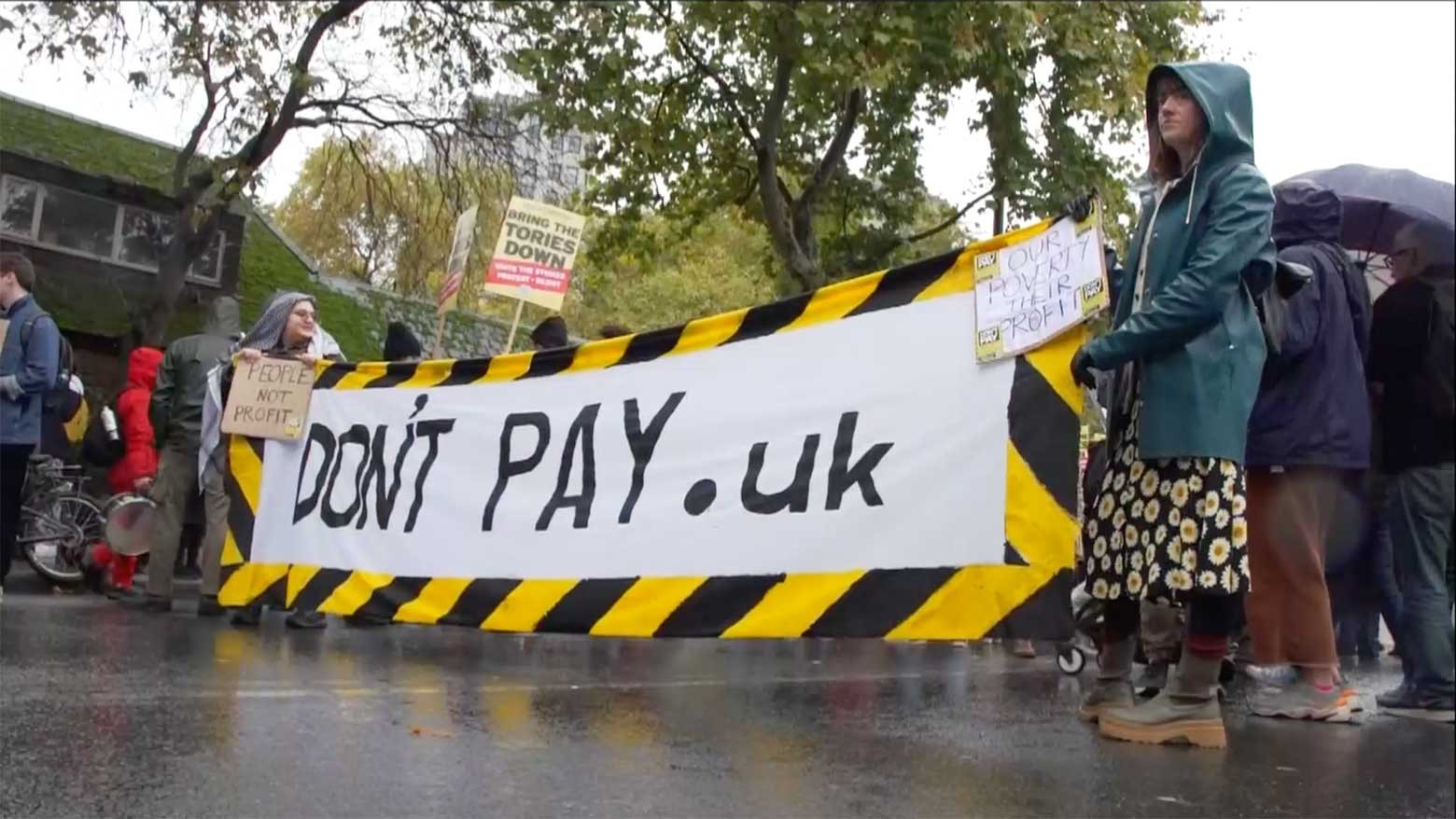A library refuge
Catford Library in the Lewisham area of southeast London may look like any other library, but it offers more than just books and computers. With a "Warm Welcome" poster in the window, it invites local residents in to relax, charge their phones and escape the cold of winter.
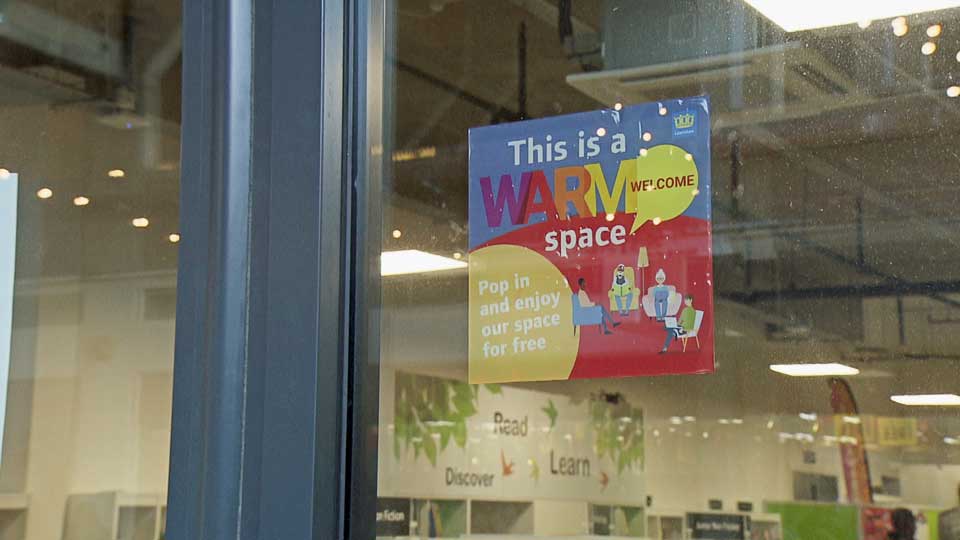
"It's a safe, warm, welcoming environment and basically, essentially means you don't have to have your heating on at home, and it saves your energy bills," says Lewisham mayor Damien Egan, speaking at the library on a chilly November afternoon. The library is one of approximately 30 "warm spaces" being provided in Lewisham, where an estimated four in ten residents are living in fuel poverty, meaning they cannot afford to adequately heat their homes. Some spaces are run by the local council; others are run by charities or religious organizations.
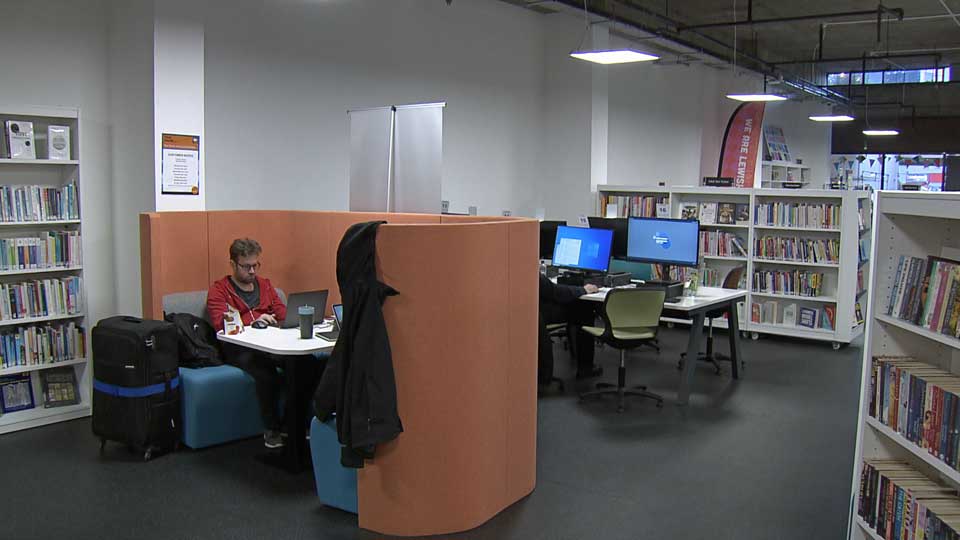
According to research by the charity Save the Children, this winter 194 of the 355 councils in England and Wales are either running warm spaces or supporting local organizations in doing so. This is despite the fact that these authorities are often themselves struggling to pay soaring energy bills. "We're trying to use buildings that are already open and maybe playing with the hours a little bit, so opening them a bit early, and making them stay open a bit later," says Egan, whose council saw its energy bill increase by approximately 15 million dollars in 2022.
A local library like Catford's, therefore, is an ideal place to double-up as a warm, yet cost-efficient space. On a recent visit, not all library visitors seemed aware that the library had been given a new, second purpose, but all were acutely aware of the cost-of-living crisis.
"I didn't know that, but … very thankful. Because I don't actually use the heater at home—to save money," said one young man who was there to study.
Elsewhere in Lewisham, a local arts charity is providing a warm space every Monday, but is careful not to label it as such. Instead, their "Winter Welcome" sessions focus on arts and crafts lessons that visitors can join in for free, with mentions of hot drinks, toast, and a "warm, welcoming" space only written in small lettering on the poster.
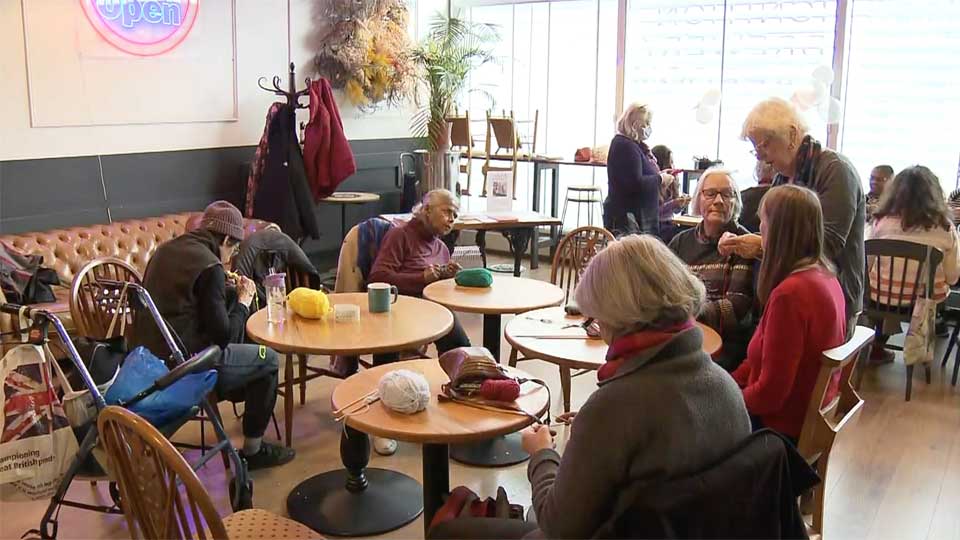
"I think it makes people feel less self-conscious about needing to come to a warm space for help," says James Hodgson, managing director at Sydenham Arts, "I think that's something that sometimes people are a bit embarrassed by."
Millions not paying energy bills
Elsewhere in the country, however, there has been a strong sense of anger about the cost-of-living crisis, and a feeling that the UK government has not done enough to protect consumers from spiraling energy costs. Last summer, a campaign group called Don't Pay UK emerged, encouraging people who can't or don't want to pay their energy bills to collectively withhold their payments. "We know that there are 1.7 million people already not paying their bills; we know that's only going to increase," says Don't Pay UK spokesperson Joe Davies.
Around 260,000 people signed up for the campaign, and although it is unclear how many followed through on the pledge, one energy firm described the protest campaign as an "existential" risk to the energy supply sector which could "result in further major supplier failures."
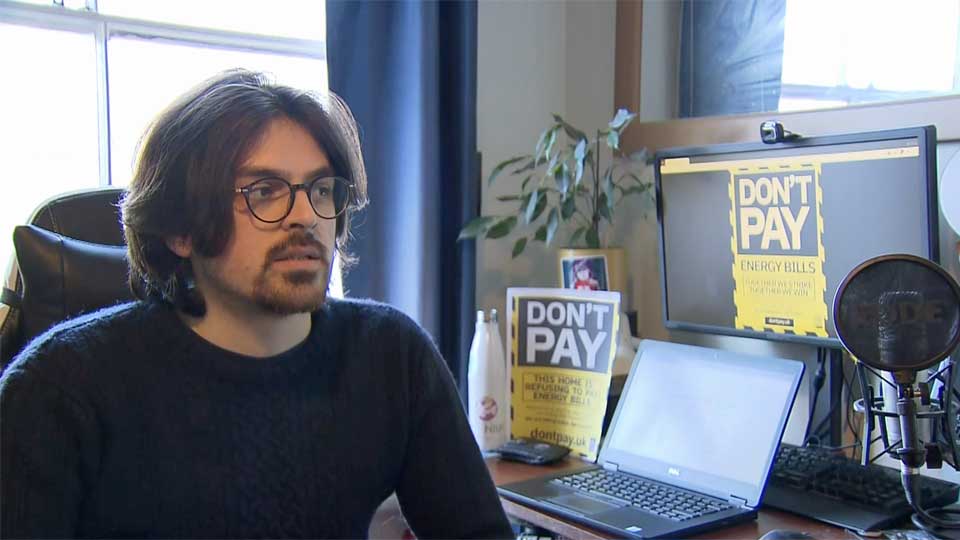
Warm spaces here to stay?
Through December and January, Britain has experienced patches of unusually cold, but also unusually warm weather, while many places in Europe saw record-high temperatures at the start of the new year. As a result, European wholesale natural gas prices have fallen to their lowest level since the invasion of Ukraine. However, this has not yet translated into lower gas and electricity bills for households in Britain. The boss of one of Europe's biggest energy companies has even warned that higher gas and electricity prices might be here to stay.
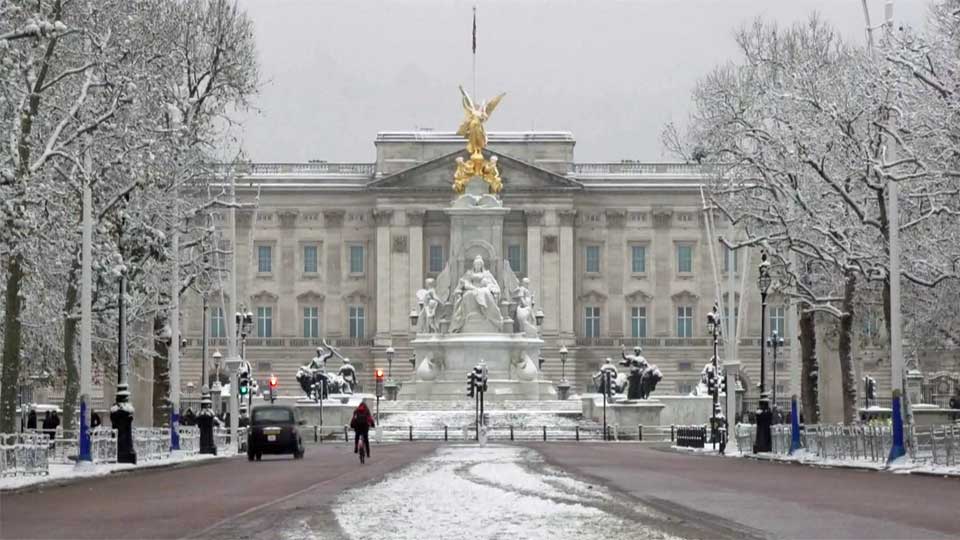
Britain is experiencing a particularly severe impact from rising energy prices, with inflation rates reaching 10.5% in December, higher than the euro area at 9.2% and the US at 6.5%. Anti-poverty campaigners say that warm spaces, much like food banks, are a temporary patch rather than a long-term fix, but the harsh reality is that these services may become a permanent fixture in British society as long as the energy cost crisis persists.
